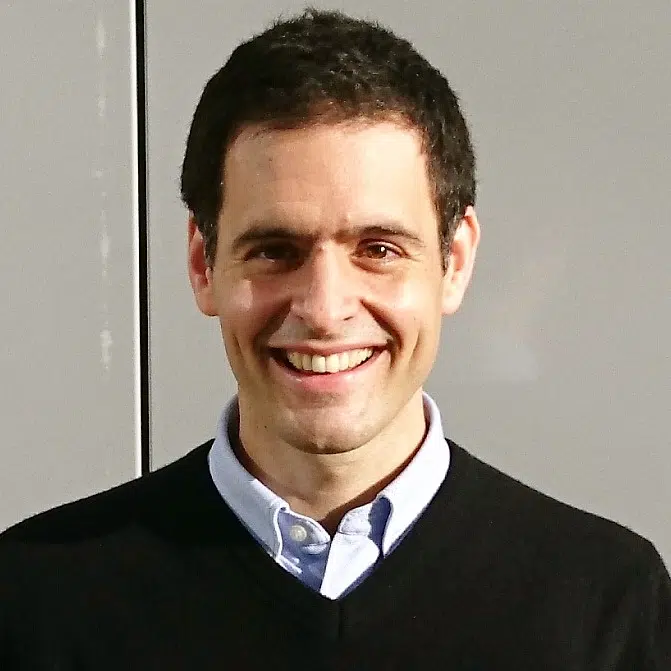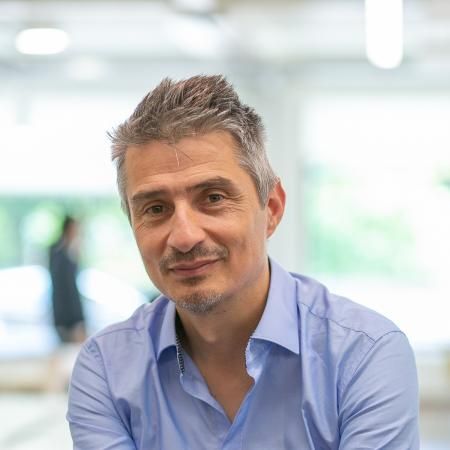Marco Cuturi and Arnaud Doucet (19.10.2022)
ScaDS.AI Dresden/Leipzig announces and welcomes you to join our public colloquium session on Wednesday, 19.10.2022 at 1 p.m. (s.t.). The speakers are Prof. Marco Cuturi and Prof. Arnaud Doucet. The colloquium takes place at Leipzig University, onsite at the Paulinum, Felix Klein lecture hall (P 501) and in parallel online on Zoom.
Prof. Sayan Mukherjee, Humboldt Professor for Artificial Intelligence, at Leipzig University, invites Prof. Marco Cuturi and Prof. Arnaud Doucet.

Prof. Marco Cuturi
- Professor of Statistics, ENSAE
- Apple, Paris, France
OT at Scale: Careful Initialization, Low-Rank Considerations and Neural Networks
This talk presents a series of efforts targeted at increasing the scalability and applicability of Optimal Transport (OT) computations. I will present efforts on two fronts: In the first part, I will discuss speeding up the discrete resolution of the Kantorovich problem, using either the Sinkhorn approach, and, in that case, focusing on efficient heuristics to initialize Sinkhorn potentials, or, alternatively, by parameterizing OT couplings as a product of low-rank non-negative matrices.
In the second part I will explain how a parameterization, in the 2-Wasserstein setting, of dual potentials as input-convex neural networks has opened several research avenues, and demonstrate this by illustrating an application to the “inverse JKOproblem, in which my goal is to reconstruct an energy landscape for measures that reconstructs a given population dynamic, an another to the simultaneous and joint estimation of several Monge maps linked by a common set of parameters.
About Prof. Marco Cuturi
Learn more about Prof. Cuturi.

Prof. Arnaud Doucet
- Professor of Statistics, University of Oxford, UK
Diffusion Schrodinger Bridges – From Generative Modeling to Inference
Denoising diffusion models, also known as score-based generative models, have recently emerged as a powerful class of generative models. They provide state-of-the-art results, not only for unconditional simulation, but also when used to sample from complex posterior distributions arising in a wide range of inverse problems such as image inpainting or deblurring. A limitation of these models is that they are computationally intensive as obtaining each sample requires simulating a non-homogeneous diffusion process over a long time horizon. We show here how a Schrodinger bridge formulation of generative modeling leads to a theoretically grounded algorithm shortening generation time which is complementary to other proposed acceleration techniques. Further, we extend the Schrodinger bridge framework to perform posterior simulation. We demonstrate this novel methodology on various applications including image super-resolution and optimal filtering for state-space models.
About Prof. Arnaud Doucet
Learn more about Prof. Doucet. Find out more about the Department of Statistical Learning
Location
Leipzig University
Paulinum
Neues Augusteum
04109 Leipzig


